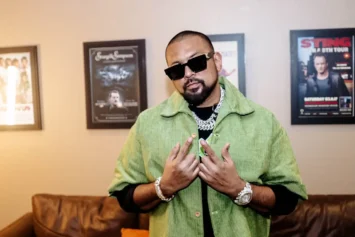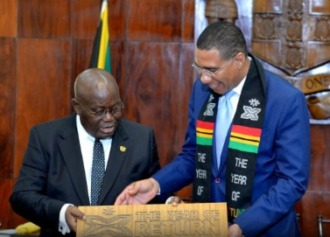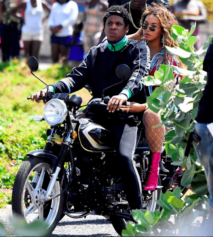Jamaica celebrates its 50th anniversary on Aug. 6. The first and largest (pop. 3 million) of 10 Caribbean islands to win independence from Britain, Jamaica has a lot to fete: it’s kept up a working, uninterrupted democracy, no mean feat for any former colony. Institutions like the University of the West Indies have gained international respect. And from reggae music to Rastafarian chic, few small, developing countries have ever branded themselves as famously as Jamaica has — a point likely to be driven home at the London Olympics by a juggernaut of Jamaican sprinters, led by Usain “Lightning” Bolt, who could win every race at the same moment their nation marks its break from British rule.
But those triumphs can’t hide the social and economic crises that Jamaica and the strategically located Caribbean basin face. The U.N. warned this year that the region’s economies are being stunted by inordinately high violent crime — though murder is down in Jamaica, it still has one of the world’s highest homicide rates. Five of the world’s 13 most indebted nations, as a share of gross domestic product, are Caribbean islands, including Jamaica. Jamaican Prime Minister Portia Simpson Miller, 66, the country’s first female leader, spoke with TIME’s Tim Padgett at her Jamaica House office in the capital, Kingston, about her reform plans — and the mix of jubilation and angst that Jamaica and the Caribbean are feeling this summer.
Beyond Jamaica’s impressive national branding and Olympics fame, how would you describe the country’s feeling of accomplishment, and perhaps also disappointment, as it approaches its 50th anniversary?
Independence is a long journey, and despite our challenges, I think we’ve done very well on balance our first 50 years. We’ve proven a strong and determined people. Jamaica is more than just the “brand” the world recognizes so well; it’s a place of pride for the people who live here, its educational institutions, its sports achievements, its science and technology growth.
In your January inauguration speech, after your landslide December election victory, you called for a referendum on eliminating the British monarch as your head of state and making Jamaica a republic. Why now?
I am a fan of the Queen [Elizabeth II]. I think she is a wonderful person. But as I said, independence for us is a long journey, from slavery and then from colonialism, and now it is time for us to have our own form of government. I do not believe that is unreasonable. We would remain a member of the [British] Commonwealth. But the time has come.
Your fans call you Sister P. Do you represent a historical shift, not only as Jamaica’s first female Prime Minister, but also as the first to hail from the sort of urban, working-class and predominantly Afro-Caribbean community that many, if not most, Jamaicans themselves are from?
I was actually born in deep rural Jamaica and came to Kingston as a high school girl. But I do believe women are natural caregivers who bring that certain perspective to leadership, [that] having more women in leadership is pushing governments forward around the world.
Read more: Time


